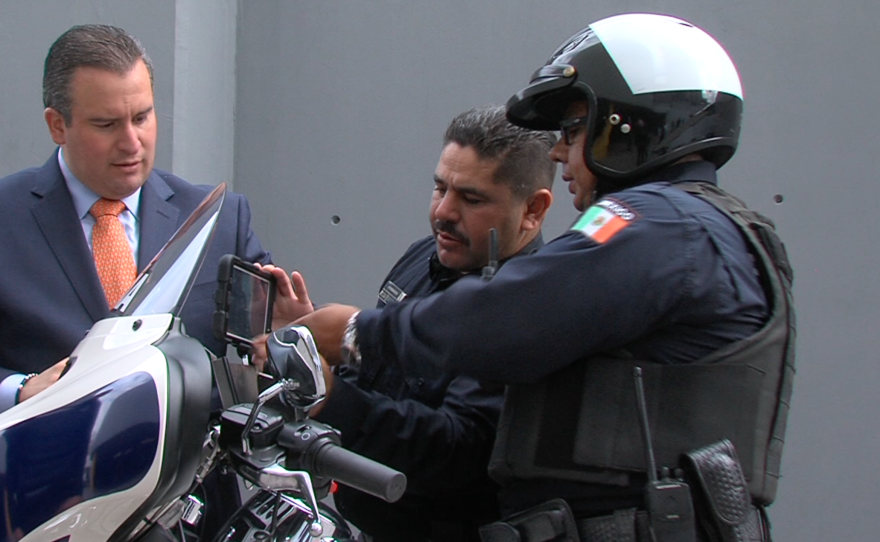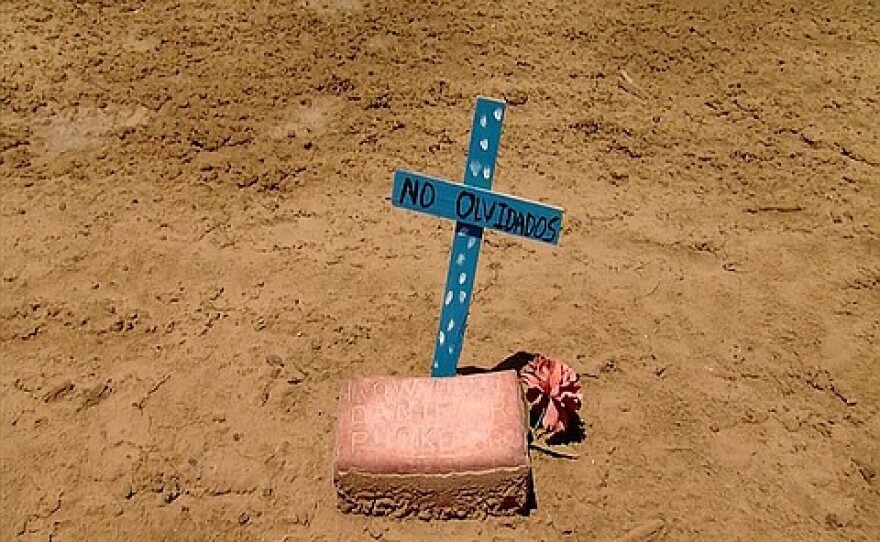Tijuana's police chief says petty crimes there are plummeting, despite an increase in homicides tied to the drug trade.
In an interview with KPBS, Alejandro Lares Valladares defined "petty crime" as any crime other than homicide, as he discussed the latest crime statistics from his department. They showed that between January and November of last year, 39,474 crimes were reported. That’s the lowest level in more than a decade.
The report said car theft and house burglaries both dropped 16 percent on the year. Violent robberies fell 30 percent for the same time period, while kidnappings dropped 70 percent. In San Diego, petty theft increased 3 percent during the first half of 2015, compared with the same period the previous year. Grand theft increased 4 percent.

Lares attributed progress south of the border to new technologies he acquired for his department. Last year, officers started using smart tablets to scan IDs and license plates, giving officers automatic access to the criminal backgrounds of their suspects.
“Our officers can actually consult the tablet and it will show if (the suspect) has a warrant, what are his priors,” Lares said.
The tablets will soon be able to record fingerprints. Lares said the police department has captured about 1,600 people with arrest warrants since launching the smart tablet program. The preceding police department captured only five people with warrants, he said.
“Every person that gets arrested by the police department is actually fingerprinted, picture taken,” Lares said. “We take their tattoos, fingerprints, faces, and we have a software where this information is uploaded.”
Lares said his police department is the first to record information like this on an electronic database in Tijuana.
Additionally, Tijuana became the first city in Mexico to acquire body cameras for its police officers last year. Lares also purchased four drones to monitor suspects in the drug trade.
“I brought technology into a department, a police department, put it into practice, and showed the people, the community that it works,” he said.
On the other hand, Tijuana saw 618 homicides during the first 11 months of last year, up 34 percent from the same period during the previous year.

Lares said increased security along the U.S.-Mexico border means more drugs are staying in Tijuana instead of crossing north into San Diego. Traffickers are now fighting amongst themselves for control of the local drug market.
U.S. deportation policies have aggravated the problem of crime in Tijuana, Lares said. Up until last year, more than a thousand migrants, many of them deported from California, were living in a homeless encampment called El Bordo in the Tijuana river canal. Many were using drugs like methamphetamine and heroin.
“Each person that used to live in that area was committing one to three crimes a day in order to subsidize his living,” Lares said.
Officials evacuated the encampment last spring, placing these migrants into rehabilitation centers, many against their will.
“All the people who used to live there committing crimes are now being taken care of by the programs,” he said.
A KPBS investigation into this government initiative found a pattern of irregularities, such as missing and misplaced migrants, undelivered funds, complaints of human rights abuses and more.
But Lares said the program has been effective. It’s one of the reasons petty crime has reached such low levels in Tijuana, he explained, adding that both tourists and residents can now feel safer walking around the streets.
“You clean up the house, you make it look better, and you have people that have confidence in the municipality, they come, and they have a good meal, they have confidence in the police department,” he said.
Lares said citizen complaints against police officers have dropped, and that no consular complaints have been filed against his department since he took office.
“Back in past administrations, there were maybe five complaints a month,” he said. “For us, tourism is very important. It’s very important for (tourists) to have confidence in our police department and in our government. We’re working very hard for them.”
Lares will be in office until December of this year.






